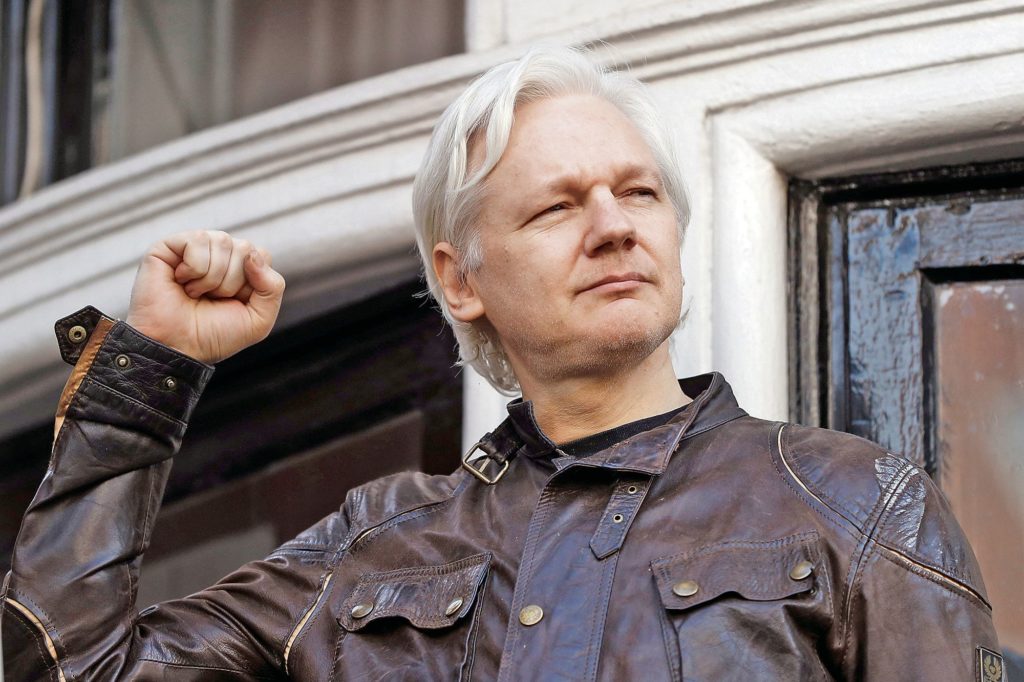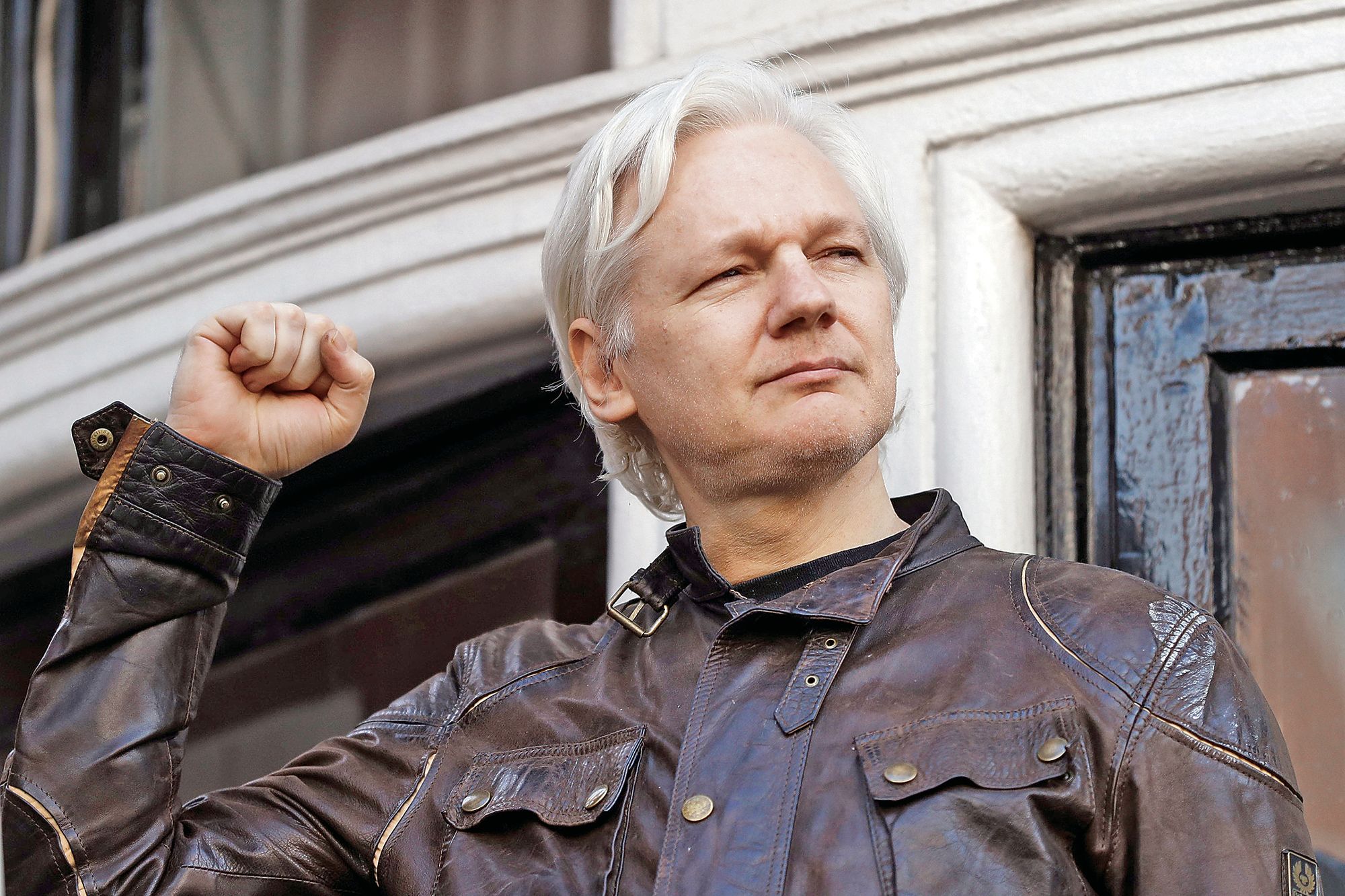López Obrador celebrates the rejection of the British justice to the extradition of the co-founder of Wikileaks and asks for his pardon.
The Government of Mexico will offer political asylum to Wikileaks co-founder Julian Assange, as said by President Andrés Manuel López Obrador this Monday. “I am going to ask the Secretary of Foreign Relations to do the corresponding procedures so that the Government of the United Kingdom is requested the possibility that Mr. Assange be released and that Mexico offers him political asylum,” he reported during the morning press conference hours after a British court rejected the extradition of the hacker to the US, where he would face penalties of up to 175 years in prison .
López Obrador has celebrated the decision of the British magistrate of the Central Criminal Court of London Vanessa Baraitser, who this Monday concluded that the co-founder of Wikileaks should not be extradited to the United States and that the risk that Assange would commit suicide, if the extradition, “was high.” The president has assured that his Administration will undertake to give Assange “protection” and will assume responsibility for “not intervening in the political affairs of any country.” “I think it is a triumph of justice. I am glad that England acts in this way because Assange is a journalist and deserves a chance. I am in favor of being pardoned ”, he pointed out.
The Mexican president had already made his position clear the previous days: “I want him to be forgiven and released.” “I do not know if he has recognized that he acted against the rules and against a political system, but at the time these cables showed how the world system works in its authoritarian nature,” he added on Friday.
López Obrador remains firm in his defense of Assange in large part because the United States government has been investigating the president since 2006, according to Wikileaks. The Mexican president considers that the majority of those cables, dated at the time he was in the opposition, “were in violation of sovereignty, freedoms and democracy.”
One of the first statements that the US security agency sends on López Obrador is an exhaustive review of the names that the politician used to form his Cabinet at the time: Rogelio Ramírez de la O, Juan Ramón de la Fuente and José María Pérez Gay. “None of the three is radical,” ends the comment.
Later, the US government pays close attention to the massive protest that López Obrador called in mid-July 2006 in the Mexican capital after losing the elections to Felipe Calderón, to denounce an alleged electoral fraud. According to a source, López Obrador plans to continue the protests until the Electoral Tribunal of the Judiciary carries out a full recount at the national level. She adds that if the TEPJF does not order such a recount, the country runs the risk of becoming ungovernable “, can be read in the leaked cable, dated July 18, 2006 . “The real question is what is AMLO’s next move, because it seems clear that he will not be happy with any result that leaves Calderón as the winner,” signs agent Alan Metlzer.
The United States expresses its concern that the protests of López Obrador’s followers will radicalize and expand, so that summer it prepares a profile on the political leader, based on interviews with historian Alejandra Lajous. “AMLO is extremely manipulative and willing to betray long-time allies and supporters to advance his cause”, “his charisma cannot be underestimated to keep the movement alive”, “he is convinced that he is correct and is reluctant to expose himself to potential criticism ”, are some of the descriptions that can be read in the document , entitled The creation of the president in the shadow. There, the US government also recognizes that López Obrador’s protests are unlikely to lead to violence, since he has always avoided it in the past.
With President Barack Obama and Hillary Clinton as Secretary of State, the investigation into López Obrador and his surroundings continues. So, the US agency wants to know what is the relationship between the president, Marcelo Ebrard – current chancellor of the Mexican Government, who was then head of the Government of Mexico City -, Jesús Ortega, Alejandro Encinas and, again, Juan Ramón de la Fuente, rector of UNAM (“one of the most prominent leftist institutions in Mexico”). “To what degree are these individuals working together or are they undermining each other? How much support do they have within the Party of the Democratic Revolution (PRD) and among the smaller leftist parties? ”Asked the text, written by the director of operations of the Intelligence Office of the State Department, Elissa G. Pitterle.
In addition, the information about López Obrador is framed within the US concern about the strengthening that the left was having in Latin America with Fidel Castro, in Cuba; Hugo Chávez, in Venezuela; Evo Morales, in Bolivia; Néstor Kirchner, in Argentina; Michelle Bachelet, in Chile, and with López Obrador, in Mexico.

Long tradition of asylum in Mexico
López Obrador’s offer of asylum to Assange is part of a long tradition of asylum in Mexico. At the end of November 2019, the country welcomed former Bolivian president Evo Morales , but the list includes, from the Spanish Republican exile, the Soviet ideologue León Trotsky, the Spanish film director Luis Buñuel, the former Argentine president Héctor Cámpora or the Guatemalan Nobel Prize winner Rigoberta Menchu. The Mexican government, conditioned by its proximity to the United States and a limited military power, has been characterized by legalistic diplomacy, that is, adhering to international law, the principles of non-intervention and showing solidarity with the victims of authoritarian regimes and war. .
Assange is imprisoned in a London jail and is accused by the US justice of 18 crimes of espionage and computer intrusion. Washington accuses him of several crimes against National Security for the publication of confidential documents about the military intervention of the United States and its allies in Iraq and Afghanistan. The Swedish authorities had demanded the delivery of the fugitive, accused of several crimes of rape and sexual abuse against two women who collaborated in a Wikileaks event in Stockholm two years earlier. The hacker had obtained diplomatic protection from the Government of Ecuador, then chaired by Rafael Correa, and was kept locked up for seven years in the premises of the Ecuadorian Embassy in London.
Source: El Pais

